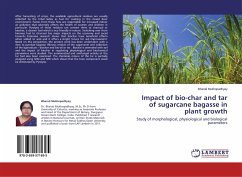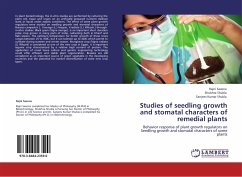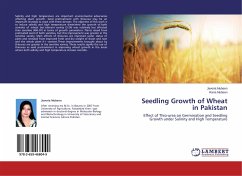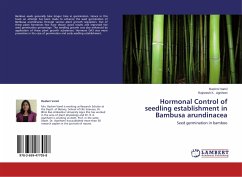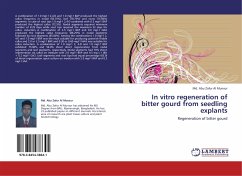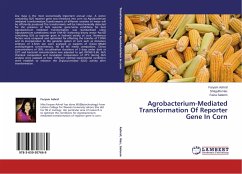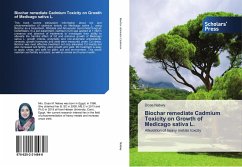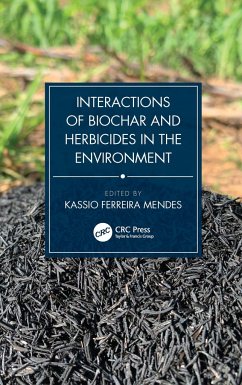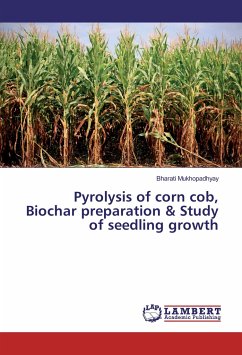
Pyrolysis of corn cob, Biochar preparation & Study of seedling growth
Versandkostenfrei!
Versandfertig in 6-10 Tagen
24,99 €
inkl. MwSt.

PAYBACK Punkte
12 °P sammeln!
Pyrolysis of agricultural residues converts them to charcoal or biochar, a cleaner fuel, eco-friendly in nature. Extensive research shows that biochar have beneficial effects when added to soil and it offers a bright future for soil improvement. Based on this perspective, the present work has been undertaken with a view to pyrolyse corn cob, collection of biochar and mixing it with soil and tissue culture media to study the seedling growth. Application of corn cob biochar in soil, improved seed germination and also results in a marked increment in seedling growth at all stages of development. ...
Pyrolysis of agricultural residues converts them to charcoal or biochar, a cleaner fuel, eco-friendly in nature. Extensive research shows that biochar have beneficial effects when added to soil and it offers a bright future for soil improvement. Based on this perspective, the present work has been undertaken with a view to pyrolyse corn cob, collection of biochar and mixing it with soil and tissue culture media to study the seedling growth. Application of corn cob biochar in soil, improved seed germination and also results in a marked increment in seedling growth at all stages of development. In addition to soil, in tissue culture MS medium, application of biochar shows distinct positive response of plant growth. Along with growth parameters, sugar, protein, DNA and chlorophyll content was also increased in the seedlings when biochar was amended in both soil and tissue culture medium. Thus, it can be concluded that biochar can be treated as a good organic fertilizer.



